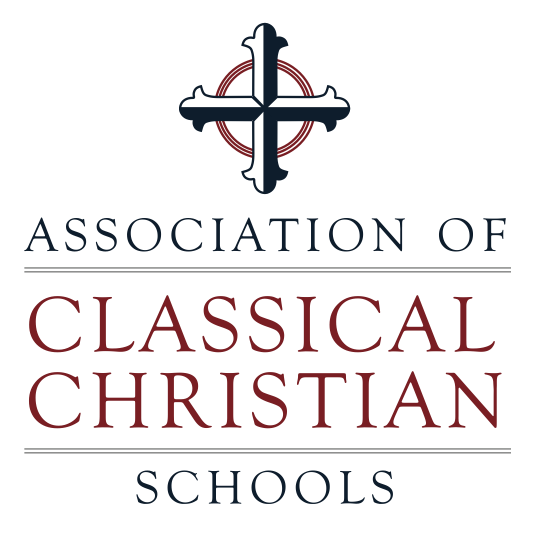What Is Classical Education?
GRAMMAR STAGE (Knowledge)
The first stage of the Trivium is the grammar stage. Children in the grammar stage range from about preschool age through fifth or sixth grade. The strengths of these children tend toward enjoying memory work and learning new concepts. Children in this age group are naturally curious about the world around them. Only once will they be able to learn or discover something for the first time. It is very important for us to preserve this curiosity and not allow it to be quenched at this stage. Young children also easily memorize facts and words and enjoy repeating rhymes, songs, and stories. Early Childhood is the optimal time for children to learn a foreign language.
the Trivium is the grammar stage. Children in the grammar stage range from about preschool age through fifth or sixth grade. The strengths of these children tend toward enjoying memory work and learning new concepts. Children in this age group are naturally curious about the world around them. Only once will they be able to learn or discover something for the first time. It is very important for us to preserve this curiosity and not allow it to be quenched at this stage. Young children also easily memorize facts and words and enjoy repeating rhymes, songs, and stories. Early Childhood is the optimal time for children to learn a foreign language.
Therefore in the grammar stage, the amassing of knowledge and facts is emphasized. Efforts are made so that children can absorb new information and develop a wide awareness and understanding of the world around them. A portion of class time is devoted to memorizing important facts through poetry, songs, rhyme, and repetition. The goal of the grammar stage is to acquire facts which make up the building blocks of each subject and to provide a solid foundation of knowledge in each subject.
LOGIC STAGE (Understanding)
As students begin to reach the middle school years, they no longer enjoy memory work and repeating rhymes or songs over and over again. These students are developing analytical reasoning skills and are able to process information and draw conclusions.
These students like to ask "Why?" Unlike the grammar stage students, they do not automatically accept everything they are taught. They tend to imagine the most extreme case and challenge what is taught. Although these tendencies may appear negative, they can be channeled to constructive activities if the students direct their challenges and questions toward the school lessons instead of toward authority.
During this stage the student learns from the mistakes and failures as well as, from the strengths and victories of historical figures. They learn that historical events are not isolated and separate from each other, but that they are interrelated and influence and affect other events. During the logic stage the students are taught to think logically and wisely, to order ideas and facts, to understand the relationship between facts and events, and to analyze and make conclusions. Timelines charts and maps, debates and persuasive reports help reinforce critical thinking. Formal logic is also studied and applied to other subjects during this stage.

RHETORIC STAGE
When students reach high school, they begin to enter the rhetoric stage. At this age the students have a great desire to express themselves. By this age, they have developed the ability to think maturely, possessing a wide perspective and the ability to think, analyze, and make logical conclusions. In the rhetoric stage students are able to articulate and clearly express their convictions and ideas gracefully and articulately.
These students are idealistic, concerned with justice, and able to assume responsibility. With their teachers and classmates, they analyze and discuss various worldviews. Because they begin to develop specialized interests, they are provided the opportunity for individual research according to their inclinations and abilities. In conclusion, classical education is a systematic, orderly system of education which provides children with order and routine. In the classical approach, students consistently learn little by little, day by day. The emphasis is on subject mastery, not merely on passing to the next level. Classical education is languagecentered, not image-centered, because the mastery of basic language skills (reading and writing) facilitates the study of every other subject. Subjects are not taught in isolation, but are integrated, and efforts are made to recognize the relationship between different fields of study.
Through these three stages, classical education endeavors to build in each child an enthusiasm for learning that will encourage lifetime learning. We desire to see each child reach his maximal potential and to be equipped and prepared to face the future.
Adapted from Classical Christian Education by Christopher Perrin

Classical Christian Principles of Instruction
Classical pedagogical (instructional) principles informed by our curriculum philosophy are as follows:
- Festina Lente (Make Haste Slowly)
- Multum Non Multa (Much Not Many)
- Repetitio Mater Memoriae (Repetition is the Mother of Memory)
- Embodied Learning
- Songs, Chants, Jingles
- Wonder and Curiosity
- Educational Virtues
- Schole, Contemplation, Leisure
- Docendo Discimus (By Teaching We Learn)
- Mimetic Instruction (Method used by ancients of learning by imitation)
- Dialogical Instruction (Socratic method of asking questions to deepen understanding)
Therefore, the CBCS curriculum, along with methods for quality instruction by teachers, shapes what children love through the joyful discovery of the true, good and beautiful, through inspiring wonder, worship, work, and wisdom along the PreK-12th grade educational journey.
Sources from Classical Academic Press, ClassicalU.com




